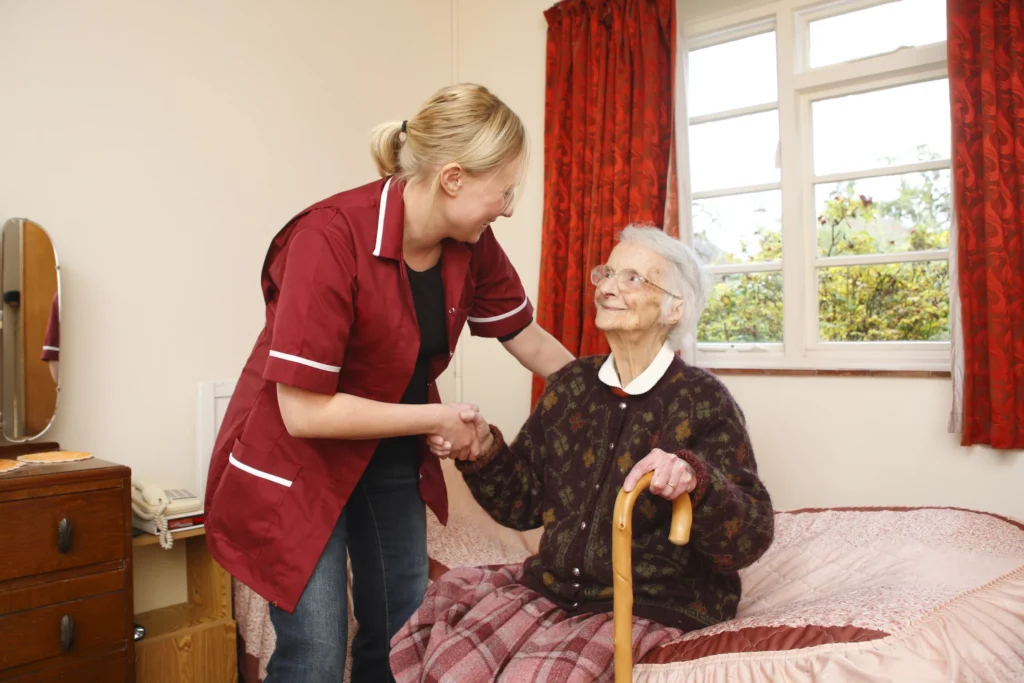When a loved one needs care at home, the person giving care is very important. It’s not just about credentials and licenses; it’s also about trust, kindness, and a real relationship. Families in the busy Denver metro area have a lot of choices, but Home Care Assistance stands out because it takes a lot of time to hire caregivers who are not only skilled experts but also caring friends.
This isn’t how most people hire people. Home Care Assistance goes above and beyond to make sure that every caregiver they hire lives up to their goal to provide “home wellness care,” which is a whole-person approach that takes care of both the body and the mind. How do they do it then?
Targeted Recruitment in the Denver Talent Pool
As a first step in the hiring process, Generation of Home Care is constantly looking for caregivers in Denver. The goal is to find people who have worked in medical, assisted living, or home care places before. To find new employees, they post job openings on local job boards, work with caregiver networks, and ask trusted professionals for recommendations. Clearly stated job postings list expectations, such as necessary skills, work ethic, and ideals that focus on the client. This makes it easier to find people who are really interested in caregiving as a career.
To make sure there is a wide range of skills, candidates with experience in specific areas are given more weight, like helping people with dementia or caring for people after surgery. Gen-X Home Care makes sure that only applicants with the right mix of caring, dependability, and technical skills move on to the next round by focusing on focused recruitment. This step quickly narrows down the talent group, which saves time and makes sure that the next steps are only for the best candidates.

Application & Resume Triage
Whenever Generation of Home Care gets an application, their hiring team looks it over to make sure it meets the company’s basic requirements. The focus of the evaluation is on practical caregiving experience, such as helping with personal care, helping with mobility, or managing a chronic illness. These steps check credentials like CNA (Certified Nursing Assistant) license, First Aid/CPR training, and QMAP training. Their work experience is looked at to see if they have been stable and consistent, so they don’t hire people who have had a lot of job changes for no clear reason.
People also look at resumes to see how well the applicant can communicate, pay attention to detail, and solve problems. Before interviews start, this sorting process gets rid of applicants who aren’t a good fit. This way, time is only spent on people who meet the professional and technical standards. The result is a short list of qualified prospects who seem like they could provide safe, reliable, and caring care. Before moving on to the next steps (interviews and skills tests), this step makes sure that the applicants already meet the basic standards and expectations of the business.
Structured Pre-Screen Call
At this point, Generation of Home Care has a short, structured phone chat with each applicant who made the short list. The goal is to make sure of important details before going on to more in-depth reviews. The call is about practical things like being available, willing to work in different Denver areas, having reliable transportation, and being able to change your schedule. Talking about pay standards early on helps make sure everyone is on the same page. Problem-solving and understanding questions based on real-life situations are also part of the pre-screen.
A person applying for a job might be asked what they would do if a client refused help or got angry. This conversation shows how they talk to others, how professional they are, and how well they can handle tough scenarios. Candidates who can’t meet the schedule standards or show that they know how to care for others properly are thrown out. The pre-screen helps keep the hiring process as quick as possible while making sure that only qualified people move on to the more in-depth interview phase.
Behavioral & Values-Based Interview
Those who pass the preliminary screening are asked to come in for a more in-depth behavioral interview. Generation of Home Care uses this step to learn about a candidate’s past jobs and how they deal with problems that come up when they are a caregiver. The interview uses open-ended, scenario-based questions to test the candidate’s ability to understand others, be flexible, and follow professional rules. They might ask applicants to describe a time when they handled a medical issue, cleared up a disagreement with a family member, or helped a client who had dementia.
The interviewer also checks to see if the individual shares the same values as the company, which stress safety, respect, and dignity. There is a standard way to score responses to make sure that everything is fair and consistent. This step is more than just checking the caregiver’s technical skills; it also checks to see if they can build trust, stay polite, and meet the specific needs of each client. You must do well in this step in order to move on to the skills and competency tests.
Skills & Scenario Assessments
Tests of practical skills are an important part of Generation of Home Care’s process. Caregiver skills like safe client moves, helping with mobility, personal hygiene, and making meals for people with special dietary needs are some of the skills that candidates are required to have. Additional situations test ways of talking to people who have dementia or other memory problems. As part of the test, candidates also have to write sample shift notes or incident reports to show how clear and accurate their writing is.
Watching a worker use these skills helps make sure they can do their job safely, quickly, and with respect. By this step, we make sure that the technical skills match the experience that people say they have on their resumes and in interviews. Applicants who show they are skilled and sure of themselves in doing these important jobs are the only ones who move on. It is very important to do the skills exam to make sure that clients get consistent, professional care that meets their needs and safety rules.
Comprehensive Background & Health Checks
Before approving a caregiver, Generation of Home Care does a number of thorough health and background checks to make sure the clients are safe and healthy. Multiple levels of criminal background checks, state caregiver registry checks, and studies of driving records for people who will be driving clients are all part of the process. They call professional references to check work history, dependability, and behavior. All applicants must show valid papers authorizing them to work and proof of who they are.
Health checks, like tuberculosis (TB) tests, are done to make sure that clients, especially those with weak immune systems, are not at risk for any contagious diseases. Prior to placement, CPR and first aid training must be up-to-date. Along with professional honesty, these checks make sure that the caregiver is physically fit to do their job. This step is a safety measure that makes sure every worker who goes into a client’s home meets the highest standards of safety, ethics, and the law before they start giving direct care.
Credential Verification & Compliance
Generation of Home Care checks that all expert credentials are valid, up-to-date, and in line with state rules in this step. This includes checking for Certified Nursing Assistant (CNA) licenses, QMAP badges, CPR/First Aid cards, and any special training for Alzheimer’s, Parkinson’s, or care after surgery. Tracking expiration dates keeps them from slipping, and candidates must show official proof of their certificates.
For certain jobs, candidates may need to show they have advanced skills by taking extra tests. Compliance also means knowing and following HIPAA rules, as well as ethical care standards and home care requirements that are special to each state. It keeps unqualified people from giving care and makes sure that the group follows the law by checking credentials before placement. The client and the caretaker are both safe because of this step. It creates a professional setting where skills and qualifications are fully in line with what safe, high-quality home care services require.
Culture, Language, and Lifestyle Fit
It’s not just about skills when matching a provider with a client; it’s also about how well they get along. Generation of Home Care chooses caregivers for jobs based on their cultural background, language skills, and lifestyle choices. Pairing a caregiver who speaks two languages with a client who speaks one of those languages can help with comfort and understanding. We also look at lifestyle factors like whether someone is pet-friendly, whether they like to smoke, and how ready they are to adapt to different home environments.
Knowing about a client’s hobbies, interests, and preferred ways of interacting with others can help build trust and a relationship between the caretaker and client. This step makes sure that the caregiver fits in naturally with the client’s daily life, which improves the chances of a long-term, stable caregiving relationship. When there is a good match, the client’s mental health is better, stress goes down, and care feels more personal. Taking these less technical things into account along with technical skills makes for a better and more complete caregiving match.
Orientation, Mentorship & Ongoing Training
Before they start working for Generation of Home Care, caregivers go through a structured orientation that goes over the company’s rules, safety procedures, documentation standards, and customer service requirements. Specific training lessons cover important subjects like caring for people with dementia, avoiding falls, preventing infections, and what to do in an emergency. Caregivers also learn how to keep professional boundaries, protect the privacy of their clients, and follow care plans correctly. In the first few weeks, new employees may be paired with more experienced teachers to help them learn. This mentorship gives you real-life experience and helps you feel more confident in your ability to handle a range of care settings.
There are ongoing training chances for caregivers to stay up to date on new health guidelines, best practices, and care techniques. By putting money into ongoing professional development, the organization makes sure that workers are always ready to meet the changing needs of their clients and keep the high standards of care consistent in every home they visit.

Shadow Shifts & Probationary Period
Before being given tasks to do on their own, caregivers may work shadow shifts to learn from and help more experienced staff. Overseeing them, this lets them learn about specific client habits, care preferences, and home environments. After these shadow shifts, there is a 30- to 90-day trial time. At this point, timing, dependability, communication, and following care plans are closely watched. Reviewing work involves getting feedback from both clients and supervisors.
There may be more training or a change of task if any problems exist. This trial time makes sure that caregivers can always provide care that is safe, respectful, and effective in the real world. Generation of Home Care only keeps caregivers on the team after their probation period is over if they meet their standards. This makes sure that Denver clients always get reliable, caring, and professional care.
Conclusion
Generation of Home Care carefully chooses caregivers so that only the most skilled, caring, and trustworthy professionals work with families in Denver. They provide excellent care that puts clients’ health, safety, and comfort first by screening carefully, matching them with the right caregivers based on their needs, and teaching their staff all the time. This makes them a reliable choice for quality home care.







